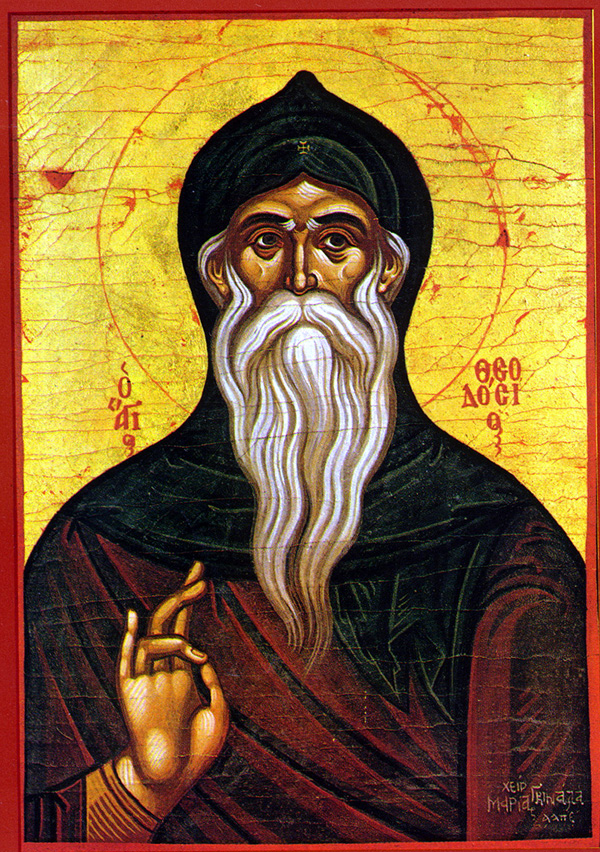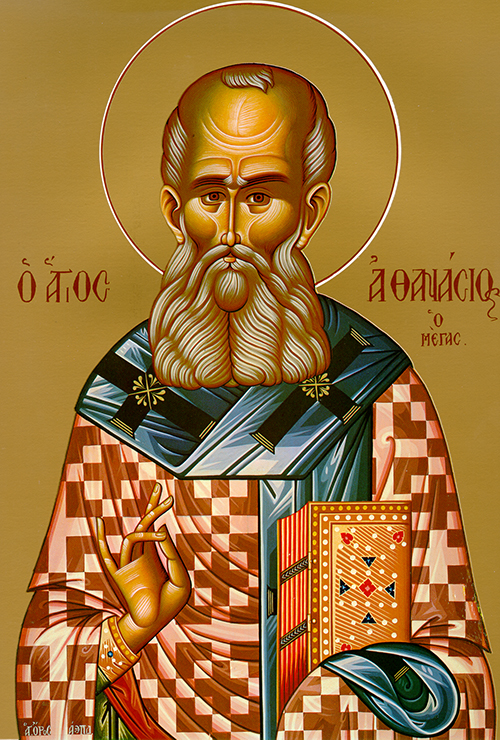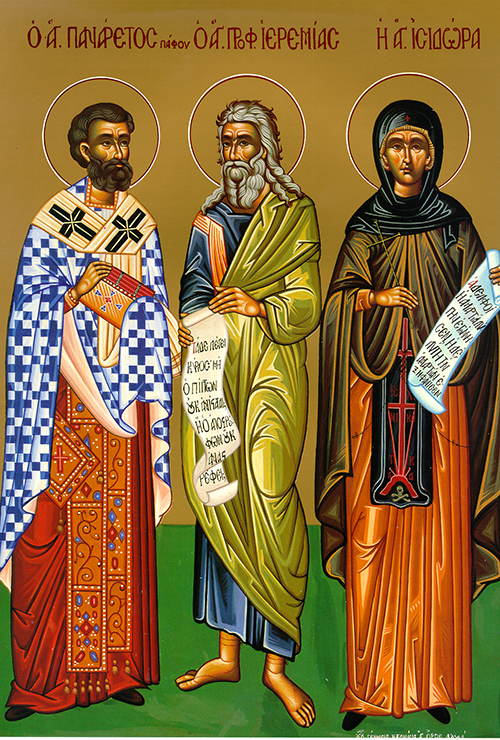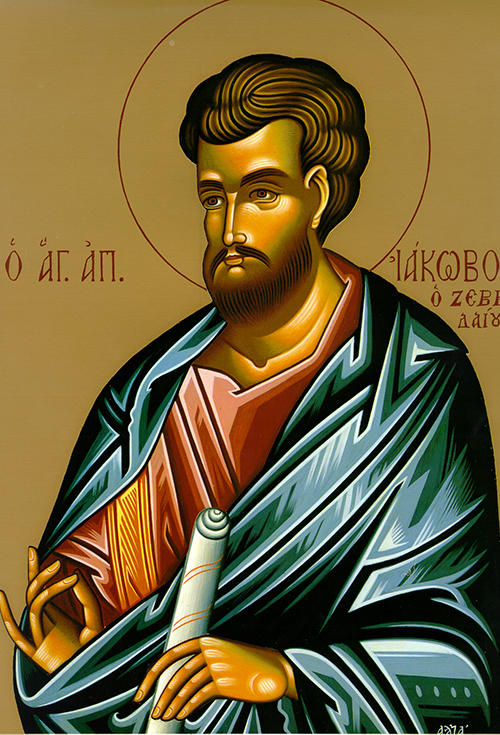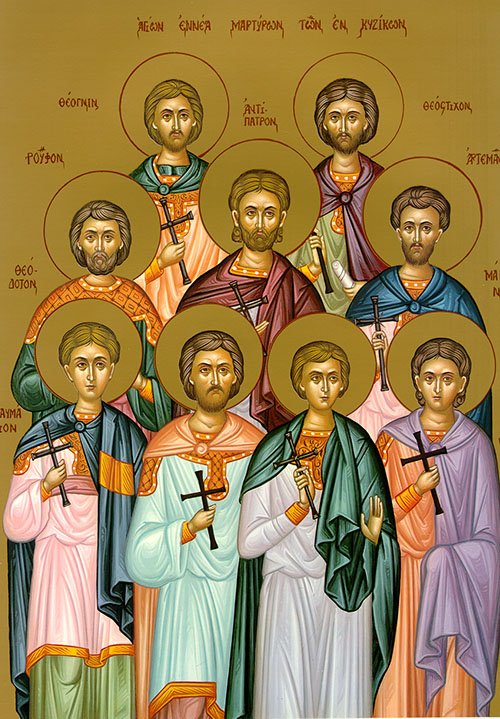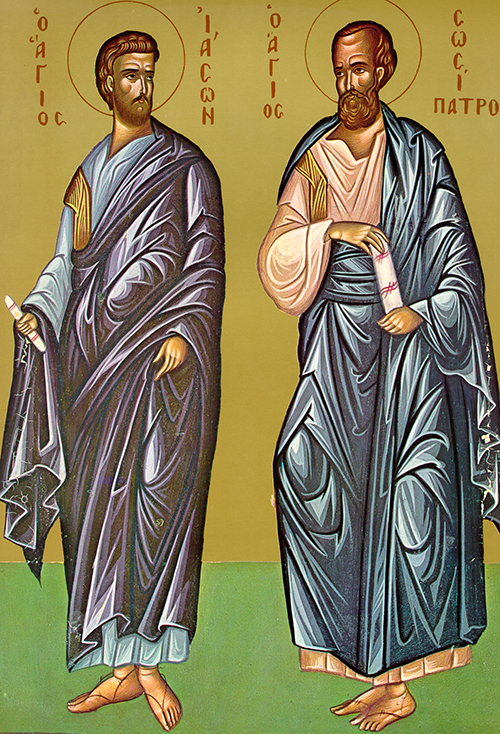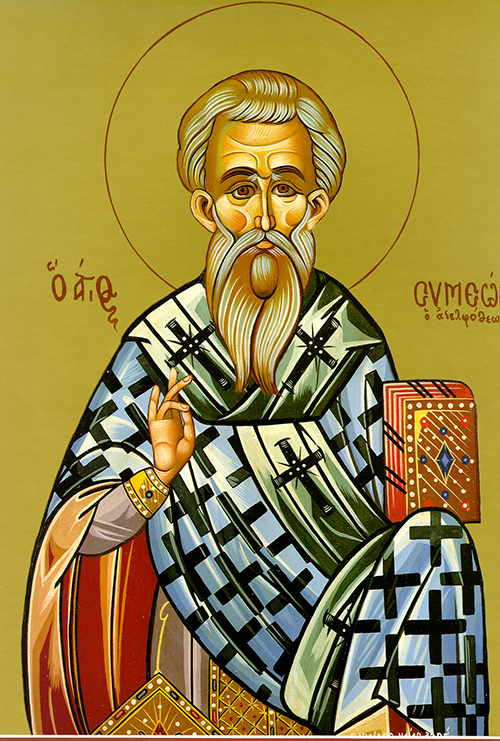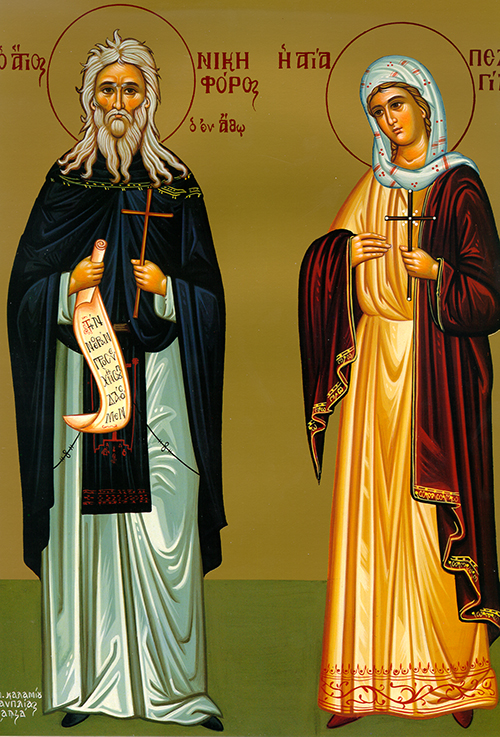

The holy martyr Pelagia of Tarsus in Cilicia (southeastern Asia Minor) lived in the third century during the reign of Diocletian (284-305), and was the daughter of illustrious pagans. When she heard about Jesus Christ from her Christian friends, she believed in Him and desired to preserve her virginity, dedicating her whole life to the Lord. Diocletian sentenced Pelagia to be burned in a red-hot bronze bull. Not permitting the executioners to touch her body, the holy martyr signed herself with the Sign of the Cross, and went into the bronze bull and her flesh melted like myrrh, filling the whole city with fragrance. St. Pelagia’s bones remained unharmed and were removed by the pagans to a place outside the city. Four lions came out of the wilderness and sat around the bones letting neither bird nor wild beast get at them. The lions protected the relics of the saint until Bishop Linus came to that place and gathered them all up and buried the relics with honor. Later, a church was built over her holy relics.
Troparion
O Jesus, your lamb Pelagia cries out to You with great love: O my Bridegroom, I long for You in great pain. I am crucified with You, and in baptism I am buried with You. I suffer for your sake in order to reign with You. I die for You in order to live in You. Accept me as an immaculate victim since I am immolated for your love. Through her intercession, O merciful One, save our souls.
Kontakion
Having inflamed your soul with love of Christ, you entered the boiling pot with courage. You became a sacrifice of pleasing aroma to the Lord. Today we remember you, O wise Pelagia, and we sing to you.
Epistle
Acts 6: 1-7
In those days, as the number of disciples grew, the ones who spoke Greek complained that their widows were being neglected in the daily distribution of food, as compared with the widows of those who spoke Hebrew. The Twelve assembled the community of the disciples and said, “It is not right for us to neglect the word of God in order to wait on tables. Look around among your own number, brothers, for seven men acknowledged to be deeply spiritual and prudent, and we shall appoint them to this task. This will permit us to concentrate on prayer and the ministry of the word.” The proposal was unanimously accepted by the community. Following this they selected Stephen, a man filled with faith and the Holy Spirit; Philip, Prochorus, Nicanor, Timon, Parmenas, and Nicolaus of Antioch, who had been a convert to Judaism. They presented these men to the apostles, who first prayed over them and then imposed hands on them.
The word of God continued to spread, while at the same time the number of disciples in Jerusalem enormously increased. There were many priests among those who embraced the faith.
Gospel
Mark 15: 43-47, 16: 1-8
At that time, Joseph from Arimathea arrived — a distinguished member of the Sanhedrin. He was another who looked forward to the reign of God. He was bold enough to seek an audience with Pilate and urgently requested the body of Jesus. Pilate was surprised that Jesus should have died so soon. He summoned the centurion and inquired whether Jesus was already dead. Learning from the centurion that Jesus was dead, Pilate released the corpse to Joseph. Then, having bought a linen shroud, Joseph took Jesus down, wrapped him in the linen, and placed him in a tomb which had been cut out of rock. Finally he rolled a stone across the entrance of the tomb. Meanwhile, Mary Magdalene and Mary the mother of Joses observed where Jesus had been entombed.
When the Sabbath was over, Mary Magdalene, Mary the mother of James, and Salome brought perfumed oils with which they intended to go and anoint Jesus. Very early, just after sunrise, on the first day of the week they came to the tomb. They were saying to one another, “Who will roll back the stone for us from the entrance of the tomb?” When they looked, they found that the stone had been rolled back (it was a huge one). On entering the tomb they saw a young man sitting at the right, dressed in a white robe. This frightened them thoroughly, but he reassured them: “You need not be amazed! You are looking for Jesus of Nazareth, the one who was crucified. He has been raised up; he is not here. See the place where they buried him. Go now and tell his disciples and Peter, ‘He is going ahead of you to Galilee, where you will see him just as he told you.’” They made their way out and fled from the tomb bewildered and trembling; and because of their great fear, they said nothing to anyone.
Icon courtesy of Jack Figel, Eastern Christian Publications – ecpubs.com


